🏠 Mobile Home Real Estate Agents: The Shocking Truth Most Homeowners Don’t Know
Searching for mobile home real estate agents to sell your manufactured home? Here’s what 95% of homeowners don’t realize: Most real estate agents CAN’T legally list or sell mobile homes. They need a separate, specialized license that few agents bother to get.
🚨 The Mobile Home Agent Reality Check:
❌ Regular real estate license ≠ Mobile home license
❌ Most agents avoid mobile homes – Too complex, lower commissions
❌ Limited MLS access – Mobile homes aren’t always included
❌ Longer sale times – 6+ months typical with agents
❌ High failure rates – 40% of mobile home listings expire unsold
💡 SHOCKING FACT: In most states, selling mobile homes requires a specialized dealer license or manufactured housing certification that 90% of traditional real estate agents don’t have.
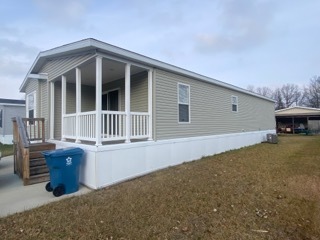
🎯 Why Regular Real Estate Agents Struggle with Mobile Homes
🚫 Licensing Limitations:
The Truth About Real Estate Licenses:
- Traditional license: Covers stick-built homes on permanent foundations
- Mobile home license: Separate certification for manufactured housing
- Dealer license: Required for mobile home sales in many states
- Park regulations: Agents must understand community-specific rules
📊 Mobile Home vs. Traditional Home Sales:
| Factor | Stick-Built Homes | Mobile Homes |
|---|---|---|
| Financing | Traditional mortgages | Specialized lenders |
| Appreciation | Generally appreciates | Often depreciates |
| Location | Permanent foundation | Park or owned land |
| MLS Listing | Standard process | Often excluded |
| Commission | 6% typical | Lower due to values |
🔍 What Agents DON’T Tell You:
Hidden Challenges Agents Face:
- Lower commissions – Mobile homes worth less = smaller paychecks
- Longer sale times – Average 6-8 months vs. 2-3 months for houses
- Complex financing – Fewer mortgage options confuse buyers
- Park approvals – Buyer must be approved by mobile home community
- Limited buyer pool – Fewer people shopping for mobile homes
Important: Learn your rights with Consumer Financial Protection Bureau manufactured housing resources.
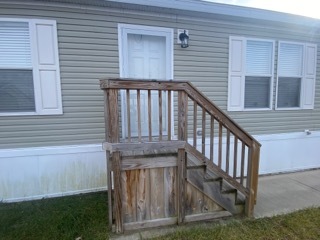
💡 Better Alternatives to Mobile Home Real Estate Agents
🏆 Option 1: Cash Mobile Home Buyers (RECOMMENDED)
Why This Works Better Than Agents: ✅ No licensing issues – Licensed dealers handle everything
✅ Fast sales – 7-14 days vs. 6+ months
✅ No commission fees – Keep more money
✅ Any condition – No repairs needed
✅ No park approval – Dealers bypass approval process
✅ Guaranteed closing – Cash deals don’t fall through
Our 30+ Years Experience:
- 1,000+ mobile homes purchased
- Licensed dealers in multiple states
- Expert movers – We also handle relocations
- Problem solvers – Evictions, foreclosures, inheritances
[GET CASH OFFER – NO AGENT NEEDED]
🏆 Option 2: Specialized Mobile Home Agents
If You Insist on Using an Agent, Find One With: ✅ Manufactured housing license – Legal authority to list
✅ Mobile home experience – 20+ mobile home sales
✅ Park relationships – Knows community managers
✅ Financing contacts – Specialized mobile home lenders
Red Flags to Avoid: ❌ “I can handle any property” – Generic agent claims
❌ No mobile home references – Can’t provide recent sales
❌ Doesn’t know park rules – Unfamiliar with mobile home communities
❌ Suggests MLS only – Doesn’t understand mobile home marketing
🏆 Option 3: For Sale By Owner (FSBO)
If You Go Solo, You’ll Need: ✅ Legal compliance knowledge – State-specific requirements
✅ Financing expertise – Help buyers understand options
✅ Marketing skills – Where mobile home buyers actually look
✅ Negotiation experience – Handle complex transactions
FSBO Challenges:
- Title transfer complexity – Mobile homes vs. real estate
- Lien resolution – Existing loans and liens
- Buyer qualification – Ensure they can get financing
- Park approval – Navigate community requirements
[COMPARE ALL YOUR SELLING OPTIONS]
🔥 When You MUST Use a Mobile Home Real Estate Agent
Situations Where Agents Make Sense:
✅ High-Value Properties ($75,000+):
- Luxury manufactured homes – Justify agent commissions
- Owned land included – More complex real estate transaction
- Custom features – Need marketing expertise
- No time pressure – Can wait 6+ months for sale
✅ Complex Legal Situations:
- Estate sales – Probate and inheritance issues
- Divorce proceedings – Court-ordered sales
- Business assets – Tax implications
- Multi-property portfolios – Investment considerations
Questions to Ask Potential Mobile Home Agents:
- “Do you have a manufactured housing license?”
- “How many mobile homes have you sold in the last 12 months?”
- “Which parks do you work with regularly?”
- “What specialized lenders do you recommend?”
- “How do you handle park approval delays?”
INTERVIEW MOBILE HOME AGENTS WITH OUR CHECKLIST
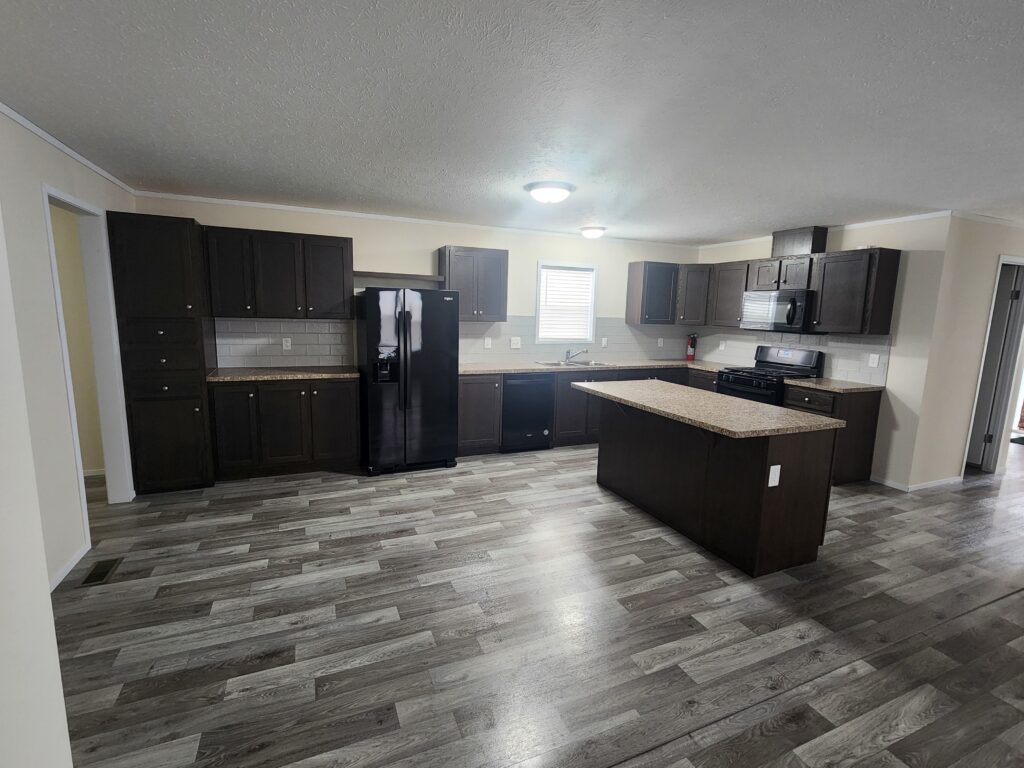
📊 Mobile Home Sales: Agent vs. Cash Buyer Comparison
Real Estate Agent Route:
Timeline: 6-12 months
- Week 1-2: Find licensed agent, sign listing agreement
- Week 3-4: Property preparation, photos, marketing setup
- Month 2-4: Showings, open houses, buyer searches
- Month 5-6: Negotiations, financing, inspections
- Month 7-8: Closing process, park approvals
Costs:
- Agent commission: 6% of sale price
- Staging/repairs: $2,000-$8,000
- Carrying costs: Lot rent, insurance, utilities
- Total cost: $15,000-$25,000 typical
Risks:
- Deal falls through – 30% of mobile home contracts fail
- Price reductions – May need to lower price multiple times
- Carrying costs – Monthly expenses while waiting
- No guarantee – Listing may expire unsold
Cash Buyer Route:
Timeline: 7-14 days
- Day 1: Contact cash buyer
- Day 2: Property evaluation
- Day 3: Written cash offer
- Day 7-14: Closing
Costs:
- No commissions: $0
- No repairs: $0
- Minimal carrying costs: 1-2 weeks only
- Total cost: Under $500 typical
Benefits:
- Guaranteed sale – Cash deals close
- No showings – No strangers in home
- Any condition – No repairs needed
- Fast cash – Money in 2 weeks
For legal protections during sales, review HUD housing transaction guidelines.
[GET YOUR CASH OFFER TODAY]
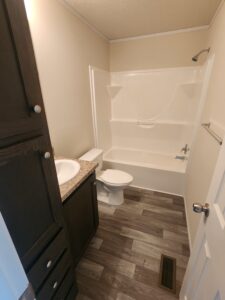
🎯 Special Mobile Home Situations (Beyond What Agents Handle)
🚨 Emergency Situations:
We Specialize in What Agents Can’t Handle:
Mobile Home Evictions:
- Behind on lot rent – Park threatening eviction
- Rule violations – Need to move quickly
- Court proceedings – Legal deadlines approaching
- Mobile Home Eviction solutions
Inherited Mobile Homes:
- Out-of-state inheritance – Can’t manage remotely
- Back taxes owed – Liens and complications
- Family disputes – Need quick resolution
- Inherited a Mobile Home help
Financial Hardship:
- Mortgage default – Foreclosure pending
- Job loss – Can’t afford payments
- Medical bills – Need cash immediately
- Sell My Mobile Home with a Mortgage options
Mobile Home Moving:
- Park closure – Forced to relocate
- Want land for building – Need home removed
- Better location – Move to new park
- How to Move a Mobile Home for Free guide
Old/Problem Homes:
- Major repairs needed – Too expensive to fix
- Code violations – Doesn’t meet standards
- Storm damage – Insurance complications
- Ways to Get Rid of an Old Mobile Home options
[SOLVE YOUR SPECIFIC MOBILE HOME SITUATION]
📈 Mobile Home Market Trends Agents Don’t Understand
2025 Mobile Home Market Reality:
What’s Really Happening:
- Inventory shortage – 40% fewer mobile homes available
- Cash buyer dominance – 65% of sales to investors
- Faster sales to specialists – Average 18 days vs. 180+ with agents
- Rising values – 5-8% annual appreciation in many markets
Why Agents Miss These Trends:
- Focus on stick-built – Don’t track mobile home data
- Limited transactions – Few mobile home sales for experience
- Outdated pricing – Use house comps instead of mobile home comps
- Don’t understand depreciation – Mobile homes depreciate differently
Current Market Opportunities:
Hot Trends Agents Don’t Know:
- Military demand – Base relocations drive quick sales
- Retirement communities – Boomers downsizing
- Investment properties – Rental income opportunities
- First-time buyers – Affordable housing shortage
For additional consumer guidance, visit USA.gov housing protection information.
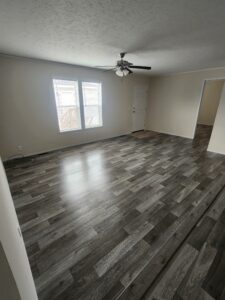
🏆 Why We’re Better Than Mobile Home Real Estate Agents
30+ Years Mobile Home Expertise:
Our Credentials: ✅ Licensed dealers – Legal authority to buy/sell
✅ 1,000+ transactions – Proven track record
✅ Nationwide network – All 50 states
✅ Moving specialists – We also relocate homes
✅ Problem solvers – Handle any situation
Services Agents Can’t Provide:
Complete Mobile Home Solutions:
- Cash purchases – Any condition, any situation
- Professional moving – Relocate to new locations
- Emergency sales – Eviction, foreclosure help
- Estate services – Inheritance complications
- Value reporting – Professional appraisals
Client Success Stories:
Recent Examples:
“Agent said my 1995 single-wide would take 8+ months to sell. Cash buyer closed in 9 days, fair price, no hassles.” – Mary, Tennessee
“Three agents wouldn’t touch my mobile home because of park issues. These specialists solved everything and paid cash.” – Robert, Florida
“Inherited mobile home in Georgia, lived in California. Agents wanted me to fly there multiple times. Cash buyer handled everything remotely.” – Linda, California
[READ MORE SUCCESS STORIES]
📞 Get Expert Mobile Home Help (No Agent Needed)
🚀 3 Ways to Get Started:
Option 1: Free Consultation ☎️
Call or Text: (989) 233-2568
- Expert advice – 30+ years experience
- No obligation – Just helpful information
- All situations – We’ve seen it all
Option 2: Online Evaluation 💻
[GET INSTANT MOBILE HOME EVALUATION]
- Property details – Quick form completion
- Market analysis – Current value estimate
- Multiple options – Compare all alternatives
Option 3: Situation-Specific Help 🎯
Choose your situation:
- Emergency sale needed
- Inherited mobile home
- Need to move home
- Getting rid of old home
- Mortgage complications
❓ Mobile Home Real Estate Agent FAQs
Q: Can any real estate agent sell my mobile home?
A: No! Most states require a separate manufactured housing license or dealer license to legally list and sell mobile homes. Always verify an agent’s mobile home credentials before hiring them.
Q: Why don’t regular agents want to list mobile homes?
A: Lower commissions (mobile homes worth less), longer sale times (6+ months typical), complex financing, and specialized knowledge requirements make mobile homes less attractive to traditional agents.
Q: How much do mobile home real estate agents charge?
A: Typically 6% commission like regular agents, but on a $40,000 mobile home, that’s only $2,400 vs. $18,000 on a $300,000 house. Many agents prefer higher-value properties.
Q: What’s better – agent or cash buyer for mobile homes?
A: Cash buyers typically offer faster sales (days vs. months), no commission fees, buy any condition, and handle complex situations agents can’t. Agents may get slightly higher prices on premium homes if you can wait 6+ months.
Q: How do I verify an agent can legally sell mobile homes?
A: Ask for their manufactured housing license number, request references from recent mobile home sales, and verify with your state’s licensing board.
Q: What if I can’t find a qualified mobile home agent in my area?
A: This is common in many markets. Cash buyers and specialized mobile home companies often provide better service than trying to find a qualified agent.
Other Articles You Might Be Interested In:
- How Much Is My Mobile Home Worth – Need current value
- Mobile Home Blue Book – Professional pricing
- How to Price Your Mobile Home – Pricing guidance
- Mobile Home Appraisal – Professional valuation
- I Want to Sell My Mobile Home Quickly – Quick sale needed

